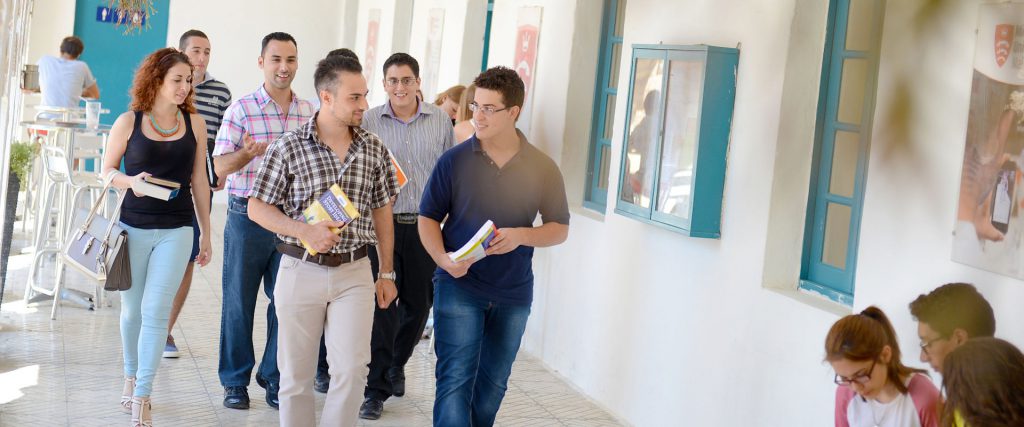At the end of primary school, the student’s parents in Argentina submit a document to the school to continue their child’s education. The Secundaria or higher course consists of six years of study. If the child has decided on a future profession and intends to focus on technical education, then he will study for seven years.

Requirements of Admission
To be admitted to Secundaria, a child must be 13 years old and parents submit the following package of documents:
- Child ID;
- Birth certificate;
- Primary school completion certificate (Primaria);
- The medical certificate with a statement of vaccinations;
- Two photos, 4×4.
Secondary education, like primary education, is divided into two levels. The first three years of study at Secundaria are called “Ciclo Básico”, where all students study according to the same program. After completing this course, the student receives general secondary education (EGB). From the fourth year, the technical training course “Ciclo Orientado” (college level) begins. The duration of training takes 3-4 years, depending on the chosen profile and specialty. As a result of the completion of the Secundaria course, children can receive specialties in the following areas:
- Field of Natural Sciences
- Foreign languages
- Economics and Management
- Environment and agriculture
- Communication and communications
- Informatics and IT technologies
- Physical education
- Tourism
- Art (music, dance, theater, visual arts, design, etc.).
The knowledge of students throughout the year is assessed on a ten-point scale. Depending on the chosen specialty, a list of subjects for test exams is determined. The study cycle is divided into trimesters, at the end of which an overall GPA is displayed based on the results of several tests.
The passing score for the next trimester is “7 points”. If a student does not get a passing grade, he has the right to retake. At the end of the school year, those students who did not pass the exams and did not score the minimum passing score can retake subjects from December 1 to December 23, and then continue from the second half of February. About 57 schools in Argentina, upon graduation, can issue an International Bachelor’s Diploma.
Higher education in Argentina
The higher education system in Argentina has been operating for over 100 years and attracts a huge number of applicants from other countries for its first-class quality education. There are 107 higher education institutions in the country, of which 40 are national universities and 7 public institutions, 45 private universities, and 12 institutes. The academic year at higher education institutions in Argentina runs from early March to late November. According to the latest data, more than 1.5 million students study in the country, of which 1.28 million studies in public institutions, and about 250,000 in private ones.
Public Universities
Public universities include various disciplines and specialties, while institutes train specialists in only one limited discipline (medicine, art, aircraft engineering, business and management, and others).
Education in public higher education institutions provides for short first-level student programs for technical degrees, and educational degrees (teachers) for 1-3 years.
The second level (university) – covers a wide range of academic disciplines and provides professional education. This level makes it possible to obtain, for example, degrees and licenses for doctors and lawyers, in which case the training can last from 4 to 6 years.
Postgraduate Education
The third level (postgraduate) is the postgraduate level aimed at the field of research and includes obtaining the degrees of “Master” and “Doctor”. This level, unlike the previous ones, is paid. On average, the number of tuition fees per month will be in the range from 300 to 400 USD.
From session to session, students pass exams, and only when they have earned the minimum required score can they proceed to further studies. In general, there are no restrictions on retaking exams in public universities in Argentina.
When entering a state university, applicants are not required to pass entrance exams. At the same time, if an applicant enters the most prestigious university in Buenos Aires, he will have to take several preparatory introductory courses.
Public universities and institutes granting Bachelor’s or Associate’s degrees do not charge tuition fees. An exception is the administrative fees for the issuance of certificates and licenses from such institutions. While private higher education institutions take payment according to the approved internal policy of the individual institution. Unlike public institutions, private universities offer a narrow specialization. The cost of education at a pedagogical or engineering faculty is significantly lower than, for example, at a medical or architecture faculty.
Expatriates’ Children
Children of expatriates who decide to enroll in higher education in Argentina must confirm their high school diploma and pass the entrance exams. Upon admission to the master’s program, you must also confirm a foreign diploma. Depending on the chosen profile of study, universities themselves form a plan and a list of subjects for entrance exams. Therefore, the requirements for applicants must be clarified directly in each specific university or on the institution’s website.
Conclusion
Summing up a brief acquaintance with the Argentine education system, it is necessary to pay attention to the fact that the Spanish language is of great importance for expats. When you move to Argentina, learning Spanish should be taken as seriously as possible and you should start learning it at home. Many migrants in Argentina believe that even 50% knowledge of the language will greatly facilitate communication problems in a new country.
Your children will need to converse and learn all topics in Spanish, therefore language learning must be a priority. Of course, you will also need some time to study language courses in Argentina itself. Zero preparatory courses are also available to university applicants at numerous education institutions throughout.
You may also like these related articles:
